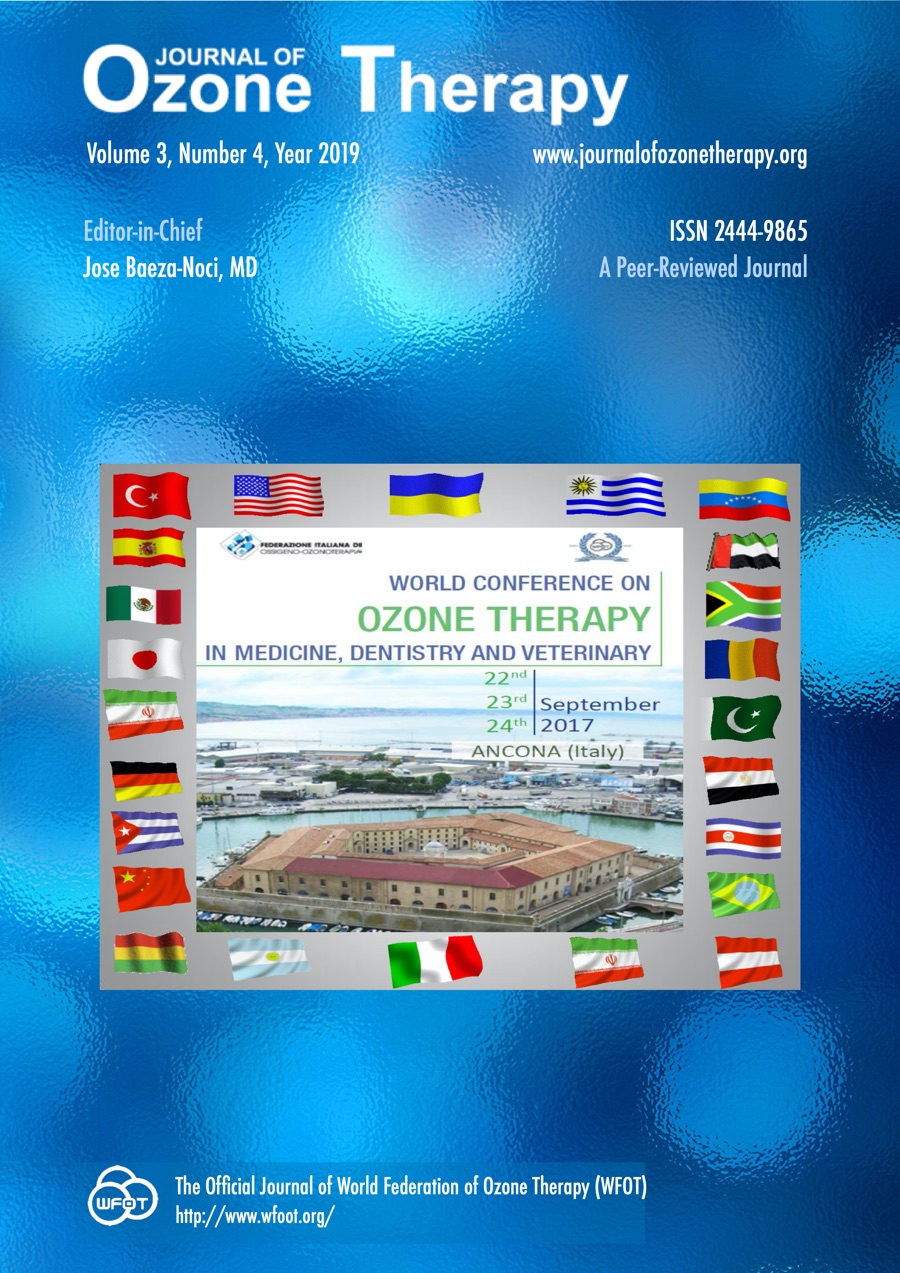Analysis of the efficacy of ozone therapy on different types of lumbar disc herniation: a new guidance is coming? [abstract]
DOI:
https://doi.org/10.7203/jo3t.3.4.2019.15506Keywords:
lumbar disc herniation, ozone injections, efficacy Abstract
Abstract
PURPOSE: To investigate the sub-types of lumbar disc herniation, compare efficacies of ozone treatment in various types of lumbar disc herniation and analyze the mechanisms.
MATERIAL AND METHODS: A total of 250 patients (159 males, 91 females; age range: 14 - 85 years) diagnosed of lumbar disc herniation from January 2009 to Jun 2014 in Nanfang Hospital were enrolled. Disc Lesions, classified by Magnetic Resonance examinations and images when injecting ozone under Digital Subtraction Angiography, were divided into four types: type I: Non-prominent nucleus pulposus with ruptured fibre ring; type II: Prominent nucleus pulposus with ruptured fibre ring; type III: Non-prominent nucleus pulposus with Non-ruptured fibre ring; type IV: Prominent nucleus pulposus with Non-ruptured fibre ring. All patients underwent intradiscal and paravertebral injection of oxygen-ozone. Visual Analogue Scale (VAS) weighted score was administered for the measurement of low back pain before treatment, and the evaluation of efficacy respectively at 1 week, 1 month, 6 month and 12 month follow-up period.
RESULTS: Most of the patients (about 4/5) showed better response to ozone treatment. Herniated disc shrinkage was obtained among type II and IV. The type II had the most reduction of average score while the type III had the least. The proportion of patients who had once experienced pain relief at the follow up interval, namely the curative efficacy, showed significant difference: type I occupied the most, type IV occupied the least.
CONCLUSION: Ozone treatment is effective and safe for all types of lumbar disc herniation, but efficacy varies according the types, of which type I has the best results and type IV has the worst ones.
 Downloads
Downloads
Downloads
Published
How to Cite
-
Abstract438
-
PDF271
Issue
Section
License
Journal of Ozone Therapy applies the Creative Commons Attribution-NonCommercial 4.0 International License (CC BY NC 4.0) license to works we publish.
Under this license, authors retain ownership of the copyright for their content, but allow anyone to download, reuse, reprint, modify, distribute and/or copy the content as long as the original authors and source are cited. No permission is required from the authors or the publishers.
You may not use the material for commercial purposes.
Appropriate attribution can be provided by simply citing the original article, provide a link to the license, and indicate if changes were made.
You may do so in any reasonable manner, but not in any way that suggests the licensor endorses you or your use.




